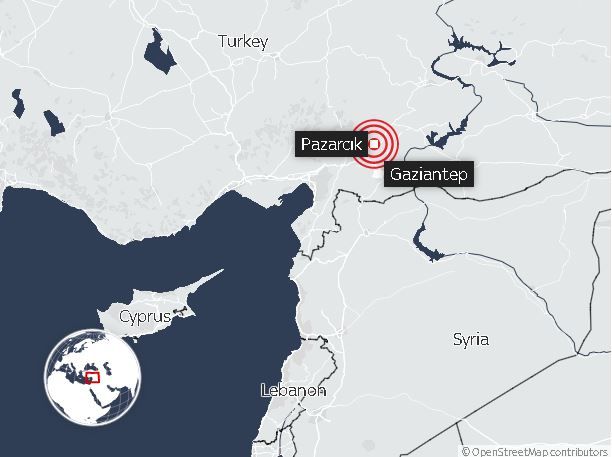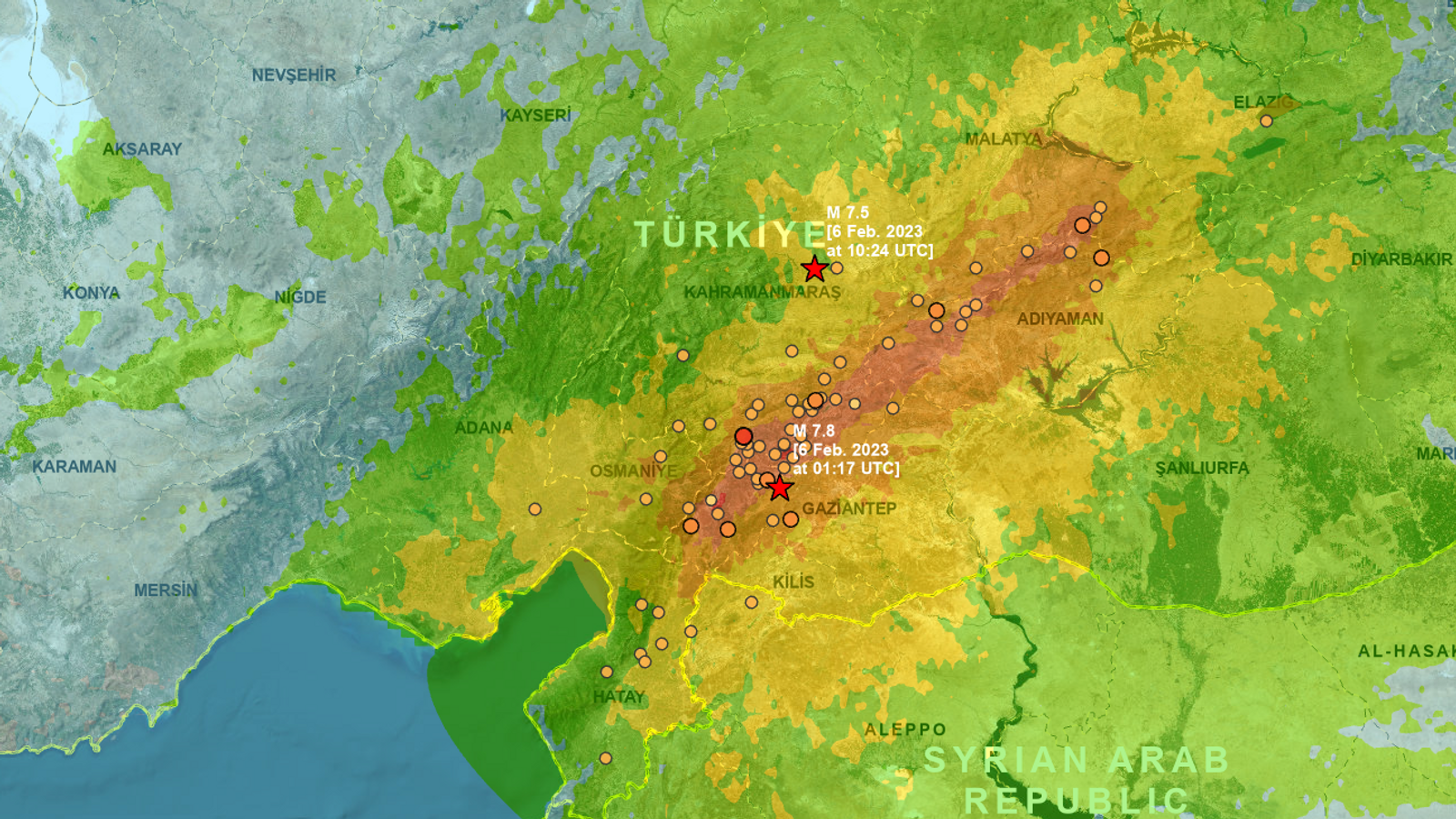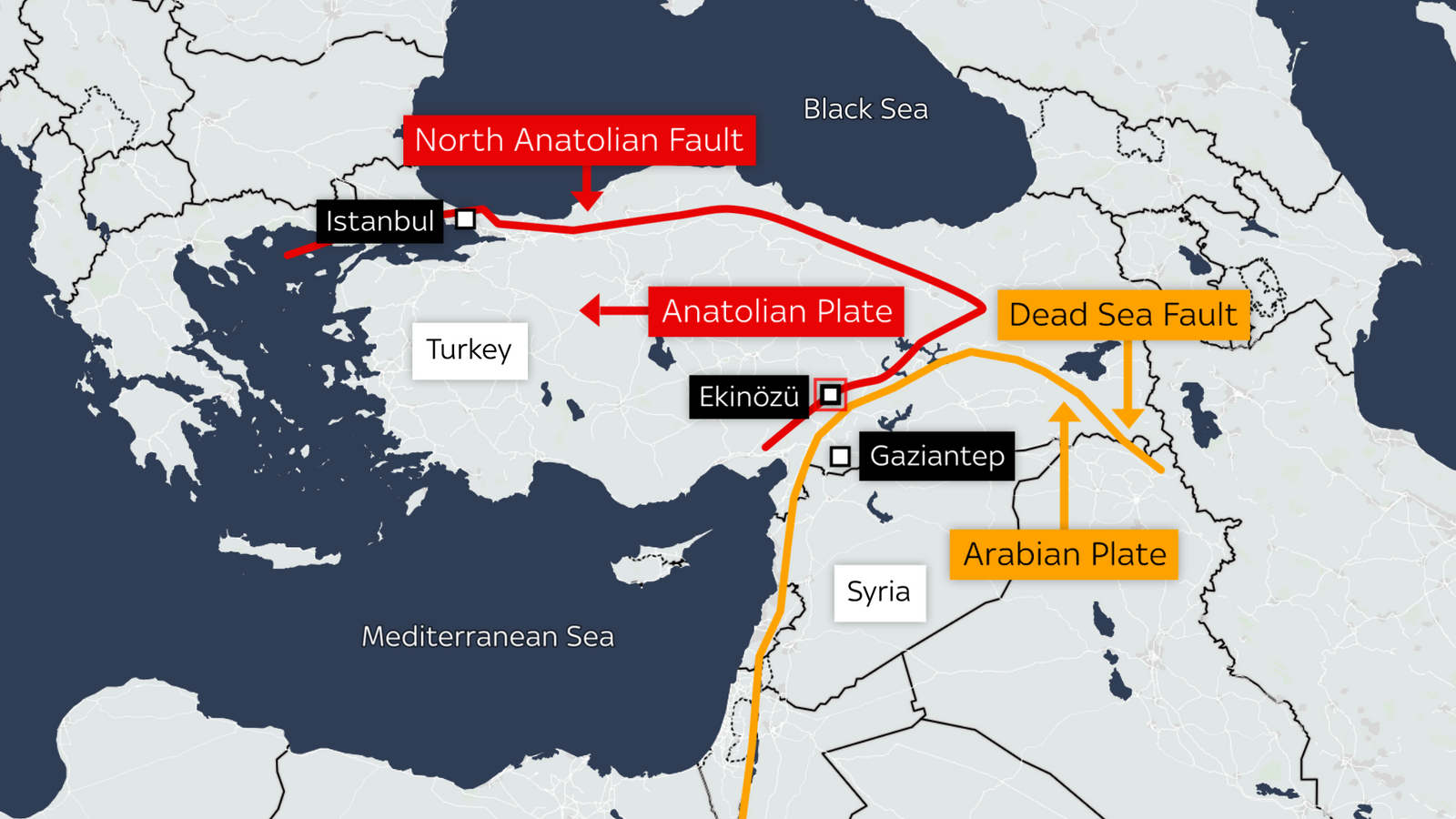
What is an aftershock - and why are mass landslides now likely after the earthquake that hit Turkey and Syria?
Two powerful earthquakes and dozens of aftershocks have wrought incalculable destruction on parts of Turkey and Syria, with much of the devastation hitting communities already vulnerable following a decade of war.
It is feared the death toll could rise to more than 20,000.
The initial 7.8 magnitude quake was followed by a 6.7 magnitude aftershock just 11 minutes later.
Another quake - almost as strong as the first, at 7.5 magnitude - hit the area within hours on Monday.

What causes earthquakes?
An earthquake is caused by what's known as a "sudden slip" on a fault line.
The Earth's tectonic plates are always moving, but they can get stuck at their edges due to friction, the United States Geological Survey (USGS) says.
It's when this stress at the edge overcomes the friction that an earthquake occurs, releasing energy in waves that travel through the Earth's crust and cause the shakes that we feel on the surface.
Yesterday's quake struck along the East Anatolian Fault zone, which runs from eastern to south-central Turkey.
Alex Hatem, a USGS research geologist, said in this case, "one plate moved west while the other moved east".
 A satellite map of areas impacted by the Turkey-Syria earthquake. Pic: United Nations Satellite Centre
A satellite map of areas impacted by the Turkey-Syria earthquake. Pic: United Nations Satellite Centre
The Turkey-Syria disaster is thought to be a "strike-slip" quake, which occurs when two tectonic plates slide past each other horizontally.
What's the difference between an earthquake and an aftershock?
Aftershocks are a sequence of quakes that happen after the larger "mainshock" on a fault.
They tend to occur near the fault where the mainshock occurred and are part of the "readjustment process" after the main slip on the fault, the scientists at USGS say.
They become less frequent as time passes following the initial shock, but can continue for days, weeks, months, or even years.
When an earthquake hit the East Anatolian area in 1822, aftershocks continued throughout the following year.
The strongest aftershock after yesterday's quake was recorded as a 7.5 magnitude quake.
That's what made this such a rare and unusual disaster.
The last time there were any tremors of similar strength in the region was in 1872.
 Several fault lines run through Turkey and Syria
Several fault lines run through Turkey and Syria
The major aftershock was probably caused by the initial quake destabilising an adjacent fault that had also accumulated geological stresses over the years.
No wonder then that Stephen Hicks, a seismologist at University College London, told Sky News on Monday that what Turkey and Syria have experienced is "the worst kind of earthquake".
Why are mass landslides likely following the earthquake?
Professor Bruce Malamud, an expert in natural and environmental Hazards at King's College London, warns that "hundreds if not thousands" of landslides could now follow the devastating earthquake.
It means that thousands of people affected by the quake could face fresh danger.
Strong earthquake ground shaking increases the likelihood of landslides in certain areas.
If the ground is saturated with water, particularly following heavy rainfall, the shaking will result in more landslides than normal.
e said: "As a result of the Turkey earthquake, the hazard relief agencies and managers will also be conscious of other natural hazards and multi-hazard cascades.
"The seismic activity will likely trigger hundreds if not thousands of landslides in the hours to days after the earthquake and subsequent aftershocks."
Those organising the large-scale evacuations of people will need to be conscious that they are not transferred to an at-risk area.











